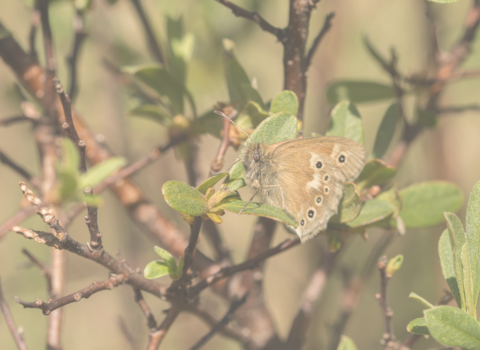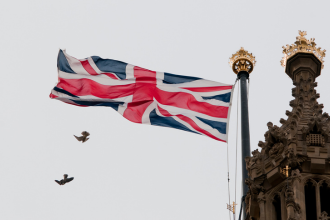The general election on 4th July is one of the most important in our lifetime.
It has never been more evident that people care about the state of their natural environment. With a general election on its way, it’s time politicians heard that message. Millions of people are calling for the environment to be higher on the political agenda - this is the most important election for the natural world in our lifetime and our decision makers need to realise that.
The landmark 2023 State of Nature Report has shown that the UK – already classified as one of the world’s most nature-depleted countries – is continuing to allow nature to decline.
The next government must be courageous and ensure that 30 per cent of the UK is connected and protected for nature’s recovery by 2030. It must support plans to restore wildlife where it has been lost to the giant footsteps of humanity. Here are our five demands.
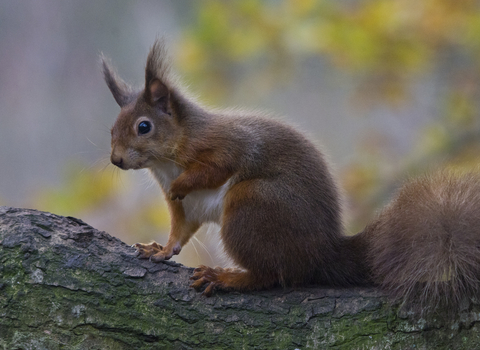
Red squirrel by Bertie Gregory/2020VISION
Bring back our lost wildlife
More than a million species are at risk of extinction across the world and many of our beloved local favourites are vanishing rapidly. We must act now or our children and grandchildren will never see a hedgehog in the wild, listen to the cascading song of the skylark or marvel at the acrobatic skills of the red squirrel.
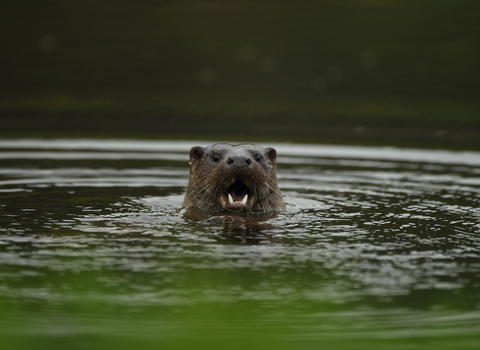
Otter by Luke Massey/2020VISION
End river pollution
Every river in our region is polluted and a dumping ground for waste. We need a strong, environmentally conscious government to tighten safeguards and ensure water courses are clean and safe for both wildlife and people.
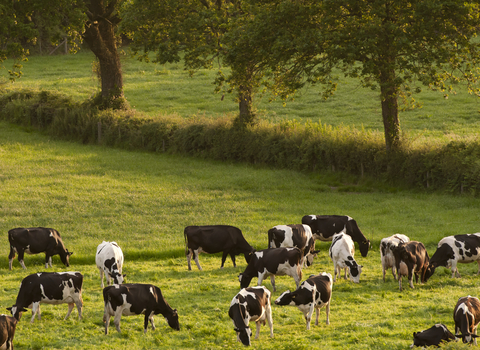
Cows grazing by Ross Hoddinott/2020VISION
Fund wildlife-friendly farming
For centuries, farmers and conservationists have viewed each other with suspicion, but these barriers are being removed as these sectors are now increasingly working together. The next government must support farmers who provide our food, but also understand the importance of wildlife on and around their land.

Green our communities
The next government must realise the importance of nature and open spaces for health and wellbeing. Using nature as a prescription for mental health issues will help our precious NHS to save millions of pounds.
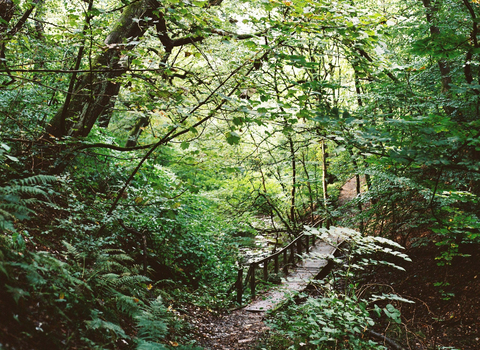
Photo by Tristan Poyser
Tackle the climate emergency
The changing climate is genuine concern, and as it has led to a biodiversity crisis like we haven’t seen in our lifetime. Climate change is a disaster for wildlife and we must ensure our next government realises that we want serious action now and for future generations.
More information on each priority
Click each drop down below to find out how we at Lancashire Wildlife Trust are working on each of the five priorities.
Bring back our lost wildlife
The Manchester argus butterfly (also known as the large heath butterfly) is back on Astley Moss after more than 100 years and the population is thriving.
Carnivorous plants on our peatlands including iconic species such as sundews and lesser bladderwort have been returned to benefit wildlife and the environment.
As part of the Fylde Sand Dunes project, we released a total of 412 captive-bred sand lizard hatchlings onto the dunes between 2017-21. Sand lizards are one of the UK's rarest reptiles, unfortunately now confined to just few sites as destruction of their habitat has massively reduced their range, so reintroduction programmes like this one are vital to establish new populations.
All of our work will be hampered if the next government ignores our calls for tougher environmental regulations.
End river pollution
We must ensure the next government has a plan to clean up our rivers with strong laws and deterrents for all polluters. All our rivers run into the Irish Sea, where plastic waste creates death traps for our amazing wildlife. Our next government must recognise this disaster happening in our seas and oceans.
Our rivers are not dumping grounds for individuals and companies. They belong to every one of us – and to nature.
We can all help by recycling our waste and by pressing our politicians to ensure there are laws that prevent pollution and unregulated waste disposal to protect our wild areas.
Fund wildlife-friendly farming
Destruction of hedgerows over the last century has been devastating for wildlife in the UK, so the Government must support farming practoces which will return these vital homes and corridors for wildlife.
The government must bring together farmers, land owners and conservationists to champion nature recovery networks, not only in the north west but across the whole of the United Kingdom.
Funding and support is vital to investigate how farmers can diversify so that their farms are good for the environment – we are getting support for our wetter farming trials, growing crops whilst reducing carbon emissions.
We will continue to support an Environment Land Management Scheme that offers a support network for our farmers which enhances areas for nature.
Green our communities
Every child needs a better start in life – to get opportunities to play and learn outdoors. This helps them to build an appreciation of nature and become campaigners to protect the wildlife that they see every day.
The Lancashire Wildlife Trust will continue to help people to find natural solutions for their health and wellbeing. Our communities, parks and gardens must become nature havens adding to the nature recovery networks that stretch across the UK. Politicians must understand the towns and cities should not stop nature, but welcome it with nectar cafes, hedgehog highways, trees and hedgerows.
The next government must regulate building and development using effective Biodiversity Net Gain, where developers must leave areas in a better state for wildlife than when their work began. Building on, or around, protected wildlife areas must be either effectively regulated or prevented.
Major infrastructure projects must involve consultation with conservation organisations to prevent damage to our region’s natural heritage. We must learn from projects where that consultation could have been better, for example HS2.
The Lancashire Wildlife Trust is a guardian against anti-nature planning, checking hundreds of planning applications every year.
Tackle the climate emergency
We hear about natural disasters across the world and we are already seeing the effects of our changing climate on our own doorstep, with more moorland fires, stormier seas, flooding of towns and villages, and lakes and reservoirs drying up in summer.
We need a government that understands that this is not a problem that you only seen on the TV news - there are consequences here and now. Already we are seeing and hearing less of our iconic moorland species and even our garden birds seem fewer every year as the hatching of eggs gets out of sync with the emergence of the insects on which adults feed their young.
Our Irish Sea, shared across several nations, experienced an unprecedented heatwave last summer. If this becomes the new normal we could all begin to see mass mortalities of seaweed, sea grass, fish and shellfish.
We need a government that understands that we care about the environment. Decisions may seem small in the overall scheme of things, but every one adds up and an "it will be all right” attitude simply will not work.
The Lancashire Wildlife Trust’s work on the peatlands, on meadows, and in the Irish Sea is leading the way and showing how we can make a difference for nature and for people.
Sign up to receive emails about our policy work
To keep up with the latest about our policy work please subscribe to our mailing list below. We will keep you posted on actions you can take and information on our campaigns, as well as general news, events and updates from around the Trust. You can unsubscribe at any time by clicking the link in the footer of our emails.
We respect your privacy and will never sell your details. For more information about how we use your data please click here, and if you have any questions, please call 01772 324129 or email marketing@lancswt.org.uk.
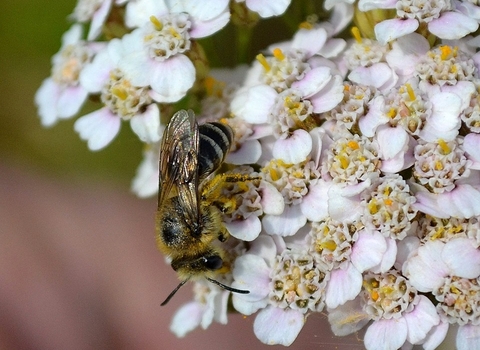
Ken Hayes
How are your election candidates scoring for nature?
Have you met with, or heard from, local election candidates?
What did you think of their plans to tackle the state of nature - assuming they have plans? Are they aware of the threats to your local open spaces and prepared to defend them? Do you feel they understand how a healthy natural world supports a healthy economy and thriving society?
Leave a satisfaction score for your local candidates today...
Download a poster and show that you're voting with nature in mind
Download our posters and display them in windows and local spaces.
Mallard by Dave Steel
Tell your candidates that nature matters
Help create half a million voices for nature!
Tell your candidates why nature matters to you. By sending an email you will be telling them clearly that nature in your area is a priority for you. The more this message is sent, the stronger it will become until candidates in every corner of the UK know wildlife is at the top of our list.
Your answers to the questions in the form will create a personal message to be sent to your candidates. Make sure you include why nature is important to you.

